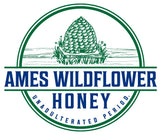What is "Natural" Anyways?


Who wants to eat honey laden with antibiotics or a compound that is poisonous? We are all worried about the future of the honey bee, and even larger commercial operations are starting to realize that more long-term thinking is needed in regard to treatment of hives for pests and diseases.I find it almost unimaginable that in the not too distant past it was common for beekeepers to destroy their colonies after the honey harvest and simply purchase new bees the following year. Now this has become rather unacceptable both ethically and financially. Bees now are required to survive our harsh winters we have to think about how we can give them the best "leg up" so to speak. In past years, antibiotic treatments had very effective short-term results. Now the pests are developing resistance, which is hurting all of us on the long-term. The most common threat to overwintering bees here in Nova Scotia (besides weather) is the Varroa mite, and the tracheal mites that tend to come with them.
We at Ames are raising our colonies using the philosophies of Ross Conrad.
- We are using IPM (Integrated Pest Management).
- Only treating hives where absolutely necessary.
- Selectively breeding for pest and disease resistance
- Never using synthetic miticides (antibiotics), which leave residue in the honey and promote resistance.
- When treatment is necessary, utilizing natural methods, Food grade essential oils Thymol, derived from Thyme, frame traps and organic acids that are already naturally occurring in the hive, albeit at lower doses.
These are the principles that we believe will help the honeybees through the coming decades. If we can reduce the pests and molds that we can strengthen the bees against environmental pressures such as pesticides.
